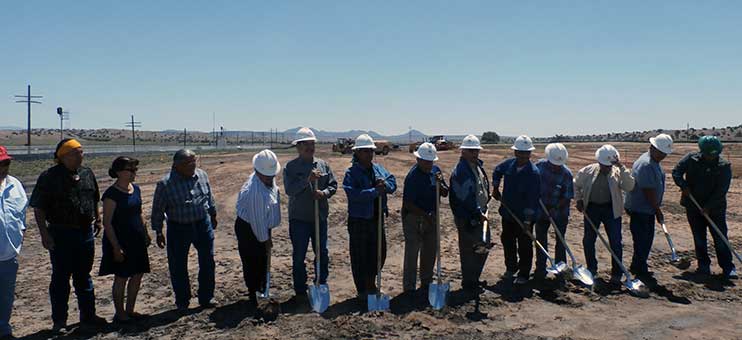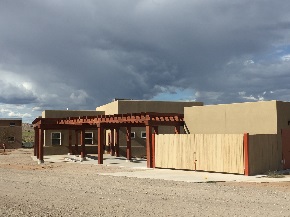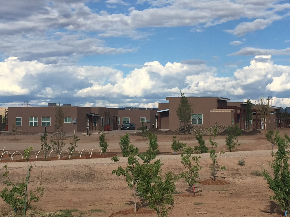
THE Academy
RCAC’s Tribal Housing Excellence Academy (THE Academy) is a 30 month initiative to work with innovative Tribal organizations in the rural West with a goal to increase housing built on Tribal lands. RCAC has competitively selected five organizations to participate in the 2022-2025 class of the Tribal Housing Excellence Academy (THE Academy):
- Cher-Ae Heights Indian Community of the Trinidad Reservation, Trinidad CA
- Northern Circle Indian Housing Authority, Ukiah CA
- Port Gamble S’Klallam Housing Authority, Kingston WA
- Pueblo of Jemez Housing Authority, Jemez Pueblo NM
- Walker River Housing Department, Schurz NV
Together these tribes have 86 homes in the development process, which will be advanced by the training and technical assistance offered through THE Academy. This THE Academy class is supported by grants from HUD’s Rural Capacity Building program and Wells Fargo.
Results
THE Academy has been held twice in the past, in 2014-2017, and 2017-2021. Thirty staff from 15 tribal housing organizations graduated from THE Academy. In the first cohort:
- 41 new homes were built by the end of THE Academy session
- Participants received a combined $912,500 in expanded federal funding from Indian Community Development Block Grants and HOME Investment Partnerships Program
- Participants secured $8.3 million in non-federal funds and Low Income Housing Tax Credit investment to leverage against their Indian Housing Block Grants
Notable achievements from the second cohort are:
- 50% of participating organizations completed a housing project during THE Academy session
- 52 new homes were built, and eight homes were rehabilitated or replaced
- 23 rental homes were under construction and 49 homes were being rehabilitated when THE Academy ended
- As a result, 132 families have better and more affordable homes
- 242 homes were still in the development process
- Participants received a combined $7.1 million in expanded federal funding from HOME, ICDBG, ICDBG-CARES, and National Housing Trust Funds
- Participants secured another $5.5 million in bank loans and Low Income Housing Tax Credit investment to leverage against their Indian Housing Block Grants
What are participants saying?
“THE Academy has assisted the Craig Tribal Housing Department tremendously.” – Kari Mackie, Housing Coordinator, Craig Tribal Association, Alaska. Mackie told her fellow THE Academy participants at the graduation ceremony in July 2018 that it’s challenging to build in Alaska, where materials are hard to get and building in a cold climate isn’t very easy. THE Academy helped her and the Tribe with market analysis, appraisals, procurement, funding sources and phases of construction.
The Santo Domingo Tribal Housing Authority, who were part of the first Academy cohort, credits the initiative with spurring it to investigate and then apply for Low Income Housing Tax Credits. This led to the Wa-Di project, completed in August 2017, and is an outstanding example of financial leveraging that THE Academy promotes.
“The Housing Excellency Academy (T.H.E. Academy) has greatly benefited the Santo Domingo Tribal Housing Authority (SDTHA) through onsite/in-class trainings with direct examples of the do’s and don’ts of Tribal housing development. The SDTHA has used these examples, adapting them to fit our new 41-unit affordable housing development. We’d like to thank T.H.E. Academy for the trainings and support offered through this opportunity.” – Joseph Kunkel, project manager, SDTHA, New Mexico.


